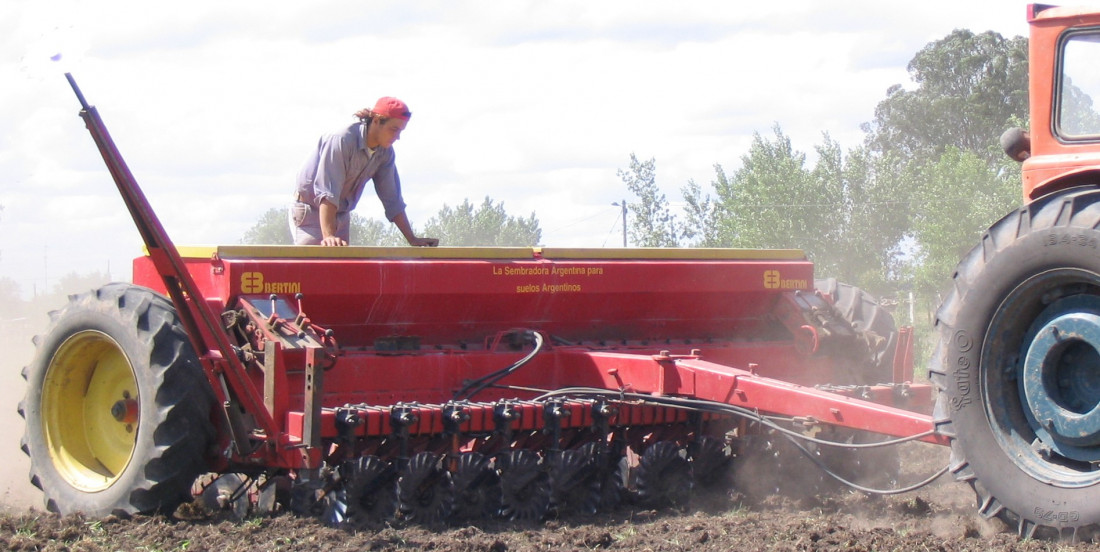The World Food Prize has been won by a man who may have many in the fertilizer industry rethinking their fertilizer sales strategies. This is because the 2017 award was recently presented to Akinwumi Adesina, president of the African Development Bank.
The reason that the prize giving may cause many to rethink their approach to fertilizer sales is best answered by Adesina himself. When collecting his award, he said, “You know, you can find Coca-Cola or Pepsi anywhere in rural Africa, so why can’t you find fertilizers?” He continues to explain that, “It is because the model that was used to distribute those farm inputs were old models based on government distribution systems, which are very, very inefficient.”
Fertilizer Distribution Challenges
He began to realize the cause of the poor quality of agriproduct distribution in Africa during his time as Nigerian Minister of Agriculture and Rural Development. As he writes on LinkedIn, “When I came on board as minister of agriculture in July of 2011, I found a corrupt and totally inefficient fertilizer sector. The government was spending huge amounts of money on direct procurement and distribution of subsidized fertilizer, but less than 11% of farmers got the fertilizers. Some of the fertilizers paid for by government were never delivered to the warehouses. Some of the fertilizer delivered contained more sand than fertilizer while a large portion of the fertilizer subsidized by government found its way across our borders to neighboring countries where it was sold at prevailing market prices.”
This is a problem highlighted by a recent report by the UN operated organization Africa Renewal, which states that, “Heavy reliance on imported fertilizers, combined with high transportation costs and the absence of suppliers in the countryside, has meant that African farmers pay between two and six times the average world price for fertilizer — when they can find it at all. An International Fertilizer Development Centre (IFDC) study estimated that it costs more to move a kilogram of fertilizer from an African port to a farm 100 kilometres inland than it costs to move it from a factory in the US to the port. With millions of African family farmers surviving on less than a dollar a day, imported fertilizer is simply unaffordable.”
Organic vs Chemical Fertilizer Use in Africa
This has left many African farmers relying on organic fertilizer alone to replenish soil that has been intensively farmed for years. As Natasha Gilbert, a reporter for the Guardian newspaper recently observed, “Organic fertilizer can help freshen up Africa’s ailing, rusty-red soils, but there is not enough land available to produce manure in sufficient quantities, says Professor Ken Giller, a soil scientist at Wageningen University in the Netherlands. One cow can produce about 15kg of nitrogen in manure annually. But a healthy maize crop needs up to 100kg of nitrogen a hectare, Giller says.”
This has created incredibly low farm productivity, and an environment which is crying out for agriproduct manufacturers to begin distributing farm products to Africa. As Giller points out, “Harvests have stagnated on the continent since the 1960s, according to data from the World Bank. On average, farmers in Africa harvest about one ton of maize (corn) a hectare, whereas their American counterparts reap up to 12 tons.”
Effective Fertilizer Distribution
So, the question becomes, how to get the chemical fertilizer that African farmers need to the rural communities. Which is where prize winning Adesina may have the answer, when he said, “I thought the best way to [provide fertilizer and agriproducts to Africa farmers] is to support rural entrepreneurs to have their own small shops to sell seeds and fertilizers to farmers.”
He continues by outlining how, “We started these agro-dealer networks and they spread over Africa. It brought farm inputs closer to farmers and it encouraged the private sector into the rural space.”
Now that many networks have been established, more and more agriproduct sales teams and fertilizer manufacturers are starting to join the trend. The need for more farming products is evident, but the challenge for fertilizer distributors is in proving the value of their fertilizer products.
It is important for African farmers to understand the benefits of soil nutrition, and how applying the right amount of fertilizer, at the right time will more than pay back the money invested. To continue to farm without replenishing the soil will lead to diminishing productivity and hunger. It is the fertilizer supplier’s task to provide the correct product and information to allow African farmers to make smart decisions.
Meanwhile, Adesina and the African Development Bank will continue to support fertilizer distributors who are willing to take on the challenge of selling agrichemicals in Africa. As he says, “The award is not just about recognition for me, it is also about putting the wind behind the sails of what still needs to be done in African agriculture.”
A wind which also blows in the sails and sales of the fertilizer industry.
“The World Food Prize was founded in 1986 by Dr. Norman E Borlaug, recipient of the 1970 Nobel Peace Prize.” the BBC reports, “Dr Adesina will receive the US $250,000 prize at the Borlaug Dialogue international symposium, which is held in the US to “help further the discussion on cutting-edge global food security issues and inspire the next generation to end hunger.”
If you want to learn more about agrichemical distribution in Africa, then you can read more via this link; Tips in Trading Chemicals in Africa.
Photo credit: goodhabaritanzania

